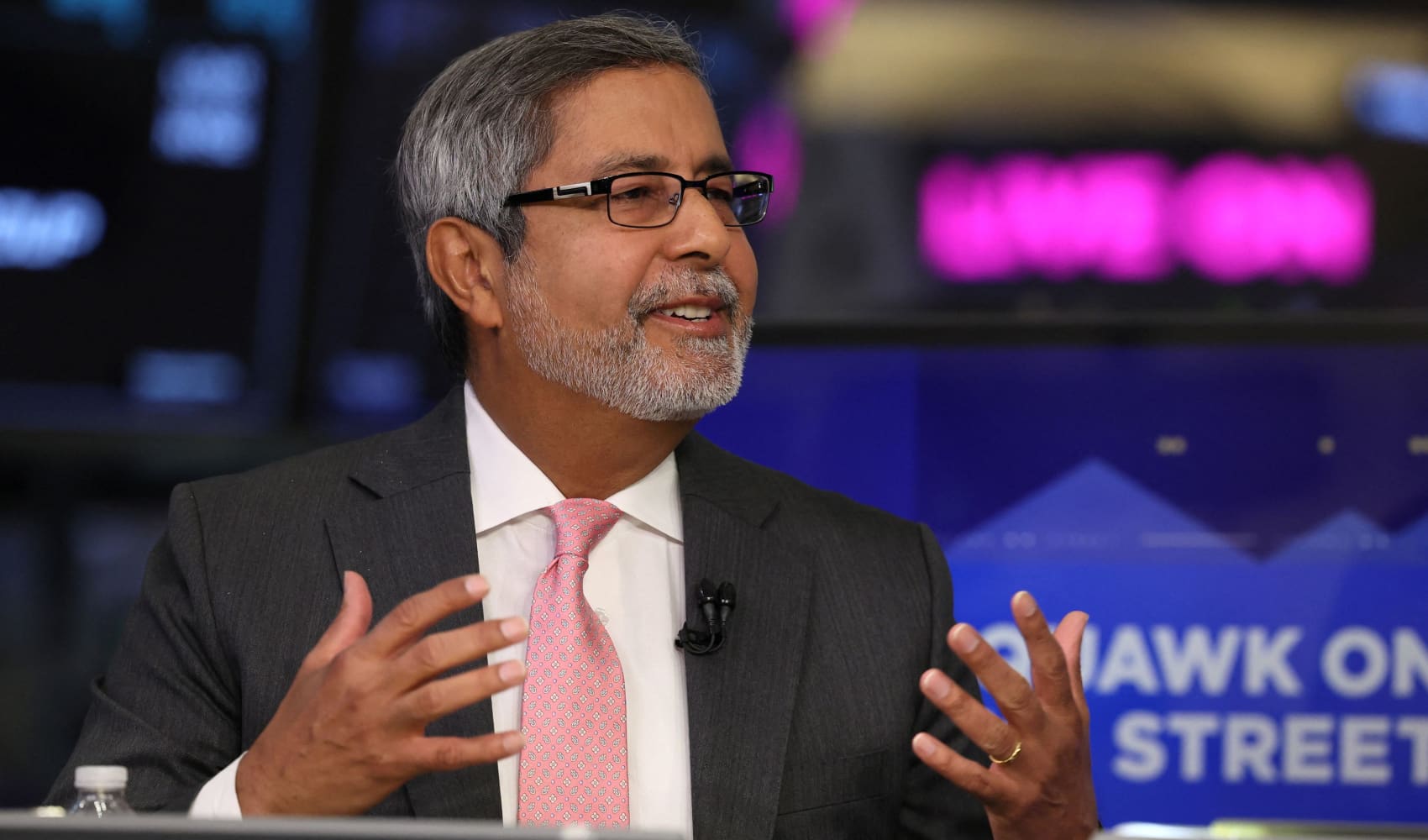
- Johnson & Johnson's consumer-health spinoff Kenvue started trading on the New York Stock Exchange under the stock ticker KVUE.
- Thursday's move values the new company at roughly $50 billion.
- Kenvue's debut is the biggest U.S. IPO since EV maker Rivian went public in 2021.
Shares of Johnson & Johnson's consumer-health spinoff Kenvue jumped 22% Thursday after its market debut on the New York Stock Exchange, making it the biggest U.S. IPO in more than a year.
The new company's shares closed at $26.90 after opening at $25.53. Kenvue originally priced its initial public offering at $22 Wednesday night, toward the high end of its target range.
Get top local stories in San Diego delivered to you every morning. >Sign up for NBC San Diego's News Headlines newsletter.
Thursday's move values the company at roughly $50 billion.
Kenvue sold 172.8 million shares in the offering, raising $3.8 billion and putting the company at a valuation of roughly $41 billion. The company initially planned to sell 151 million shares.
The company, which trades under the ticker KVUE, holds a wealth of widely known consumer brands such as Band-Aid, Tylenol, Listerine, Neutrogena, Aveeno and J&J's namesake baby powder.
Money Report
"Millions of consumers around the world this morning wake up with a Kenvue product in their home," CEO Thibaut Mongon, told CNBC's "Squawk on the Street" Thursday morning ahead of the stock's debut.
Mongon previously served as J&J's executive vice president and worldwide chair of consumer health. He will sit on Kenvue's board.

Kenvue's IPO marks the largest restructuring move in J&J's 135-year history.
J&J first announced the spinoff in November 2021 as an effort to streamline operations and refocus on its faster-growing medical devices and pharmaceutical divisions.
But the company will generally be able to control the direction of Kenvue's business and matters that shareholders vote on for the time being: The health giant will own 1.7 billion shares of Kenvue's common stock after the IPO completes, representing a 90.9% stake. J&J will reduce the rest of its stake in Kenvue later this year.
Mongon told CNBC that J&J has been "very clear" about its intent to separate from Kenvue this calendar year.
Kenvue expects to pay a quarterly cash dividend of about 20 cents per share starting with the third quarter, which ends Oct. 1. Mongon called it an "attractive dividend policy that will be a way for us to produce more value back to shareholders."
Meanwhile, the consumer-focused Kenvue is already profitable. The spinoff posted $14.95 billion in sales for 2022 and a net income of $1.46 billion on a pro forma basis, according to a preliminary prospectus filed with the Securities and Exchange Commission last week.
"We do this from a position of strength. Kenvue is a healthy business," Mongon told CNBC.
For the first quarter, which ended April 2, Kenvue estimates it raked in sales of $3.85 billion and net income of around $330 million. Those results are preliminary.
It expects annual sales growth through 2025 to be about 3% to 4% globally, according to the filing.
The IPO still leaves J&J liable for thousands of allegations that its talc baby powder and other talc products caused cancer. Those products fall under the company's consumer-health business, now Kenvue, but the spinoff will assume only talc-related liabilities that arise outside the U.S. and Canada, according to its IPO filing from January.
When asked about the liabilities, Mongon said Kenvue is "laser-focused on what we do best: serving our customers and also our portfolio with the brands that we mentioned."
The debut raises hopes that the muted U.S. market for initial public offerings could be recovering after it collapsed last year.
Kenvue's IPO raised more than every other offering so far this year, according to a report from Renaissance Capital. The 40 IPOs in 2023 have only raised a combined $2.4 billion.
The spinoff is also the largest IPO since the electric vehicle maker Rivian went public in November 2021.






